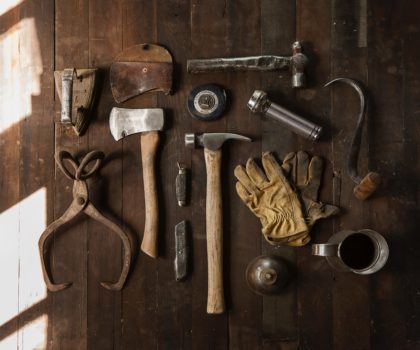There are many creative—and easy—ways to get senior assistance in reducing electric and heating bills. From simply adding insulation and weather stripping to your home to purchasing Energy Star certified appliances, you can ensure that the utility bills which come each month like clockwork are less alarming to open. When you save energy in your senior home you not only put extra money in your pocket each month, you also help reduce America’s reliance on fossil fuels. Remember, however, that to get senior assistance and reduce your monthly outlay you really don’t have to do without. Consumers today have a wide array of choices for energy alternative lights and fixtures—it only requires taking advantage of them.
Senior Assistance for Home Improvements
To take advantage of all senior assistance available, consider making some energy-saving investments in your home. If your home is not well insulated, now is the time to have insulation added to walls, ceiling and attics. Adding this much-needed insulation to your home can save you from 20 to 35% of your monthly home heating bill. If your home is all-electric, you might want to consider switching to gas for maximum senior assistance.
Old windows can be responsible for as much as one-third of the energy lost in your home. Replacing ordinary windows with double-glazed energy-efficient windows can save you up to 32% on your monthly bill and allow your home to stay cooler in the summer and warmer in the winter as well as bringing less dust into your home. Your air conditioner will not have to run as much, reducing its wear and tear and allowing it to last longer.
Weatherize your home simply by purchasing and installing tubes of caulk and weather stripping. Your goal is to stop all air leaks around your doors and windows, and you can most likely do the work yourself. Caulking can cost a mere $1 per window, while weather stripping will run about $10 per door. For inexpensive senior assistance, ask your utility company for a home energy audit to find out where it is poorly insulated or energy inefficient. Often this service for senior communities is free or costs very little.
Senior Assistance for Home Appliances
If you are in the market for a new appliance, in the interest of maximum senior assistance make sure you buy Energy Star Certified types. If you cannot afford new appliances, there are still ways you can reduce your electricity and heating bills by such simple measures as turning your refrigerator to a more energy-efficient temperature. Refrigerators account for about one fifth of your electricity usage, so set your refrigerator at 36-37 degrees and your freezer at 3-4 degrees, then check all gaskets to make sure they are clean and tightly sealed.
Wash clothes in cold water rather than hot—by making this simple switch you can substantially decrease your energy bill. Don’t run your dishwasher until it’s full, and let the dishes dry naturally—this will save at least 20% of your dishwasher’s total electric usage. Turn down the thermostat on your hot water heater—most are set at 140 degrees, when actually 120 will work just fine.
Senior Assistance for Home Heating and Cooling
Set your thermostat around 67-68 degrees during the day, and 55 at night during the winter months, and 78 during the day in the summer. You will find you quickly adjust to this minimal change, and the savings are a great boon to senior assistance. Make sure the air filters in your heating and cooling system are changed regularly— a dirty air conditioner filter can cost you as much as 5% of your monthly bill.
Small investments really pay off; change out your home bulbs to compact fluorescent bulbs, and purchase an insulating blanket for your hot water heater. Use less hot water by having a shower head which has a flow restrictor installed, and make sure none of your vents are blocked by rugs or furniture as this prohibits your system from circulating air efficiently. Use heavy drapes in the winter time to keep heat inside your home, and open the south-facing curtains during daylight hours to allow the sunshine to warm your living space. Check with your local utility companies to see what senior assistance is offered for utility help in your particular city, as there are often many programs to help seniors out.






